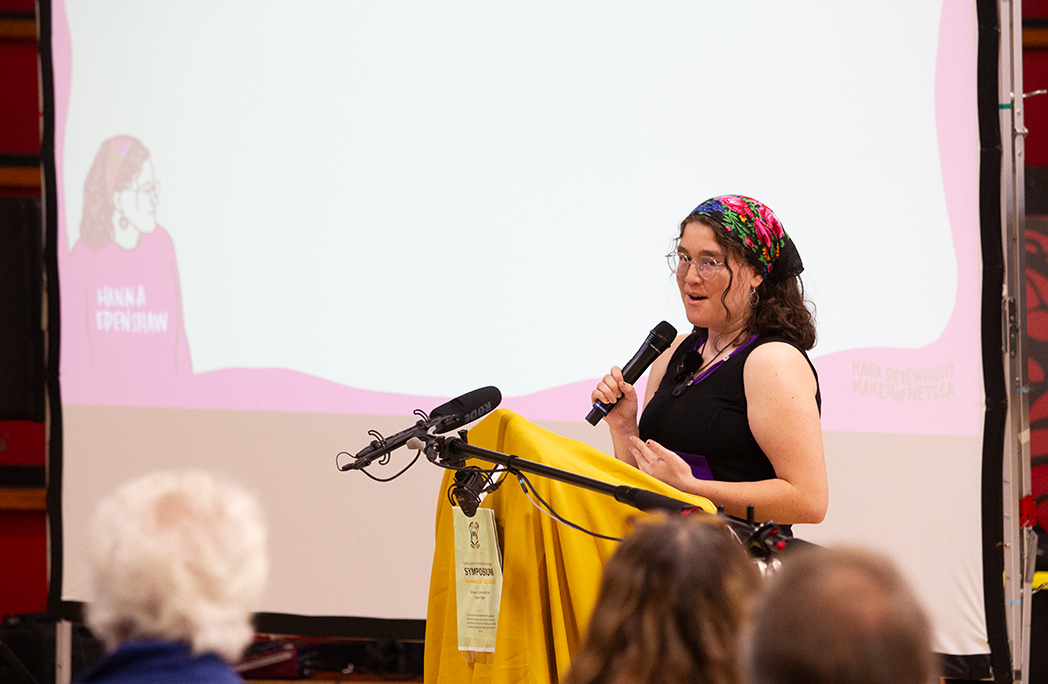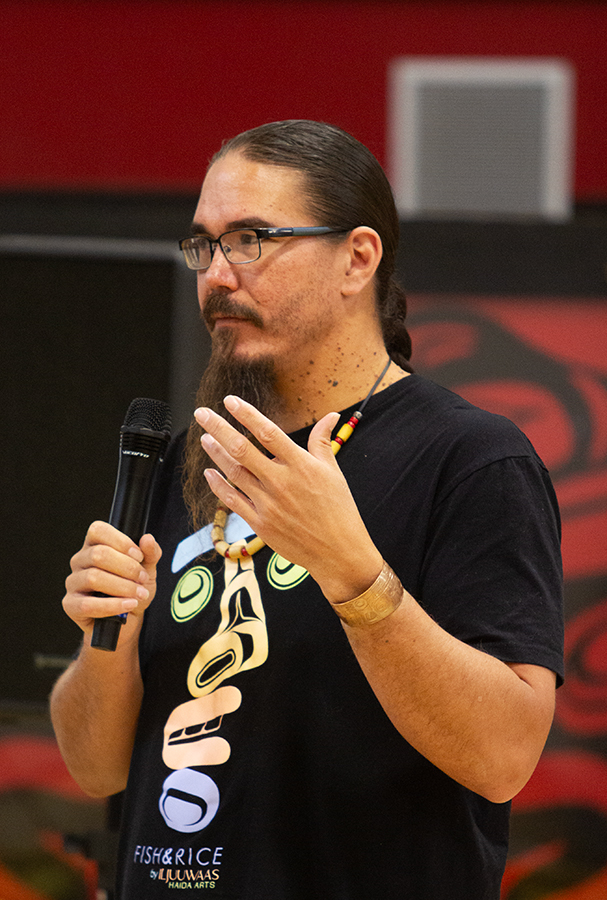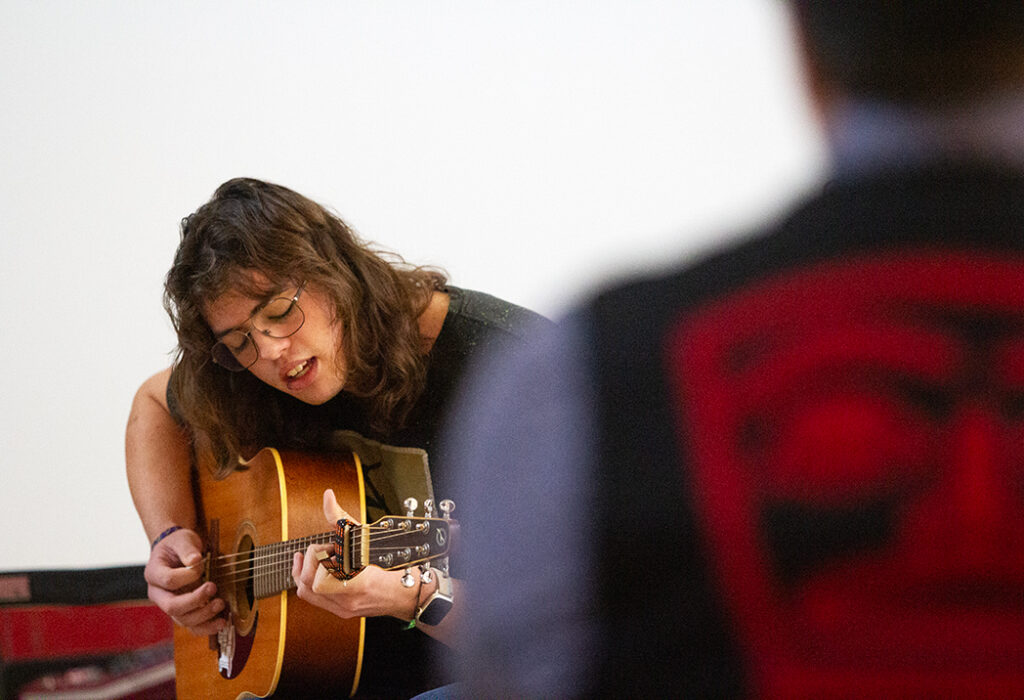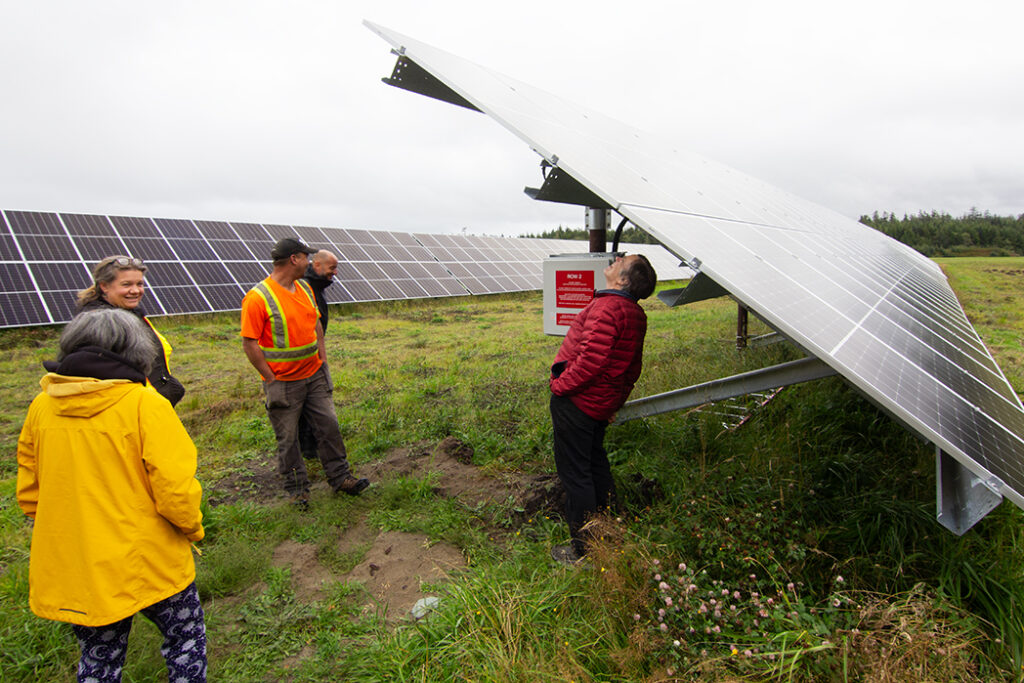
How does Haida Gwaii look in 2074? That question gave a theme to the Swiilawiid Sustainability Society’s third renewable energy symposium, hosted at the Kwiiyaans Hall in G̱aw Tlagée last weekend.
But what stole the show were several clean-power and food-security projects happening here and now.
Tll Yahda Energy, the Haida-owned renewable energy company, is partnering with BC Hydro to install solar-powered electric vehicle chargers at the Kay Centre, Chief Matthews School and three homes each in Old Massett and Skidegate.
The home installations are a proof-of-concept that may lead to more such systems on local homes.
Tll Yahda is also partnering with Yourbrook Energy Systems, a Haida Gwaii company that is nearing the end of a $1.3-million engineering study for the Kamdis Tidal Power Demonstration Project.
“Things are going well,” said Clyde Greenough, Yourbrook’s chief operating officer, after showing an animated model of how the tidal-power project will work.
Based on a prototype launched six years ago, the project is expected to supply Haida Gwaii’s northern electrical grid with 500 kW of clean power. Its turbine will run all through the tide cycle, even slack tide, thanks to a variable pump and a water reservoir.
“It’s been a long road to say the least, but we keep pushing through,” Greenough said.
At one of several booths at the symposium, BC Hydro staff spoke with islands residents about a rebate offer of up to $150,000 for home-based solar-panel and battery storage systems. Another BC Hydro program offers a free, more energy-efficient fridge to anyone on Haida Gwaii with one made in 2008 or earlier. The deadline to apply is Halloween.
PRIMED likely won the weekend’s best acronym award. The Pacific Regional Institute for Marine Energy Discovery, part of the University of Victoria, has been working with the Council of the Haida Nation to research wave, tidal, and wind power potential around Haida Gwaii for the last three years using sensor buoys and FLiDAR technology.
Visiting presenters at the symposium included Jacob Beaton, whose traditional name means “compulsively building eagle.” Beaton spoke about the one-of-a-kind Indigenous food-sovereignty training program at his Tea Creek Farm in Kitwanga. A documentary about Tea Creek will screen online after Oct. 11 at teacreekfilm.ca.
Another visiting presenter was Cody Brentzen, a carpenter and “air boss” with BCIT who runs skilled-trades training for Indigenous youth all about building energy-efficient homes.
Brentzen said the programs could travel to Haida Gwaii, but interested youth ages 18 to 30 can also go to Squamish to join a six-day, hands-on workshop that will turns a cabin into an energy-efficient building next month. Anyone interested can learn more by emailing [email protected].
Other symposium presenters spoke about avoiding landfilling, inventing a better battery, going from carbon offsets to carbon negatives, a district-heating project led by Old Massett Village Council, and choosing the future list of renewables options for Haida Gwaii.
Hear more from the Swiilawiid Sustainability Society by listening to the Haida Gwaii Tea Time podcast, available free on Spotify and other platforms.

“At times, for a lot of people, I know it can be a heavy thing to think about what we’re confronted with here — systems change in a system where everything has been built around cheap fossil fuels,” he said. “We’re seeing that system come to a place where it isn’t working.” (Andrew Hudson photo)


